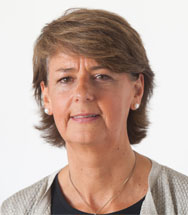'Women and Education in the roots of contemporary Mexico'.
seminar from group of research in Recent History (GIHRE)

The group of research in Recent History (GIHRE) of the University of Navarra wanted to start last Wednesday the seminars of the course 2015-16 with the presentation of work of Mª Helena Vales-Villamarín, "Mujer y Education en las raíces del México contemporáneo", which last June was awarded with the II award Ernestina de Champourcin a programs of study on women.
Mª Helena Vales-Villamarín analyzes what Education was like for women in the colony of Nuevo Santander, the current state of Tamaulipas, in Mexico. Ernestina de Champourcin went into exile in Mexico, the land that saw the fecundity of her work. The study by Mª Helena Vales-Villamarín highlights the history of women from a liberating dimension of history; the poetess of the generation of '27 was involved in women's projects that were involved in the struggle for freedom. Finally, just as Ernestina showed a special interest in the female Education , Professor Vales-Villamarín supports the thesis that the Education is the basis for the transformation of women.
The state of Tamaulipas is a little known territory, border, rich and diverse, with 400 km of coastline. Its inhabitants make their living from cattle ranching, agriculture, oil and also drug trafficking. It is currently under siege. "Its notes are wealth and insecurity," said Mª Helena Vales-Villamarín.
The colony of New Santander was of little interest to the Spanish Crown, so it was subjected to the interests of the bellicose Indians. The work of the researcher Vales-Villamarín intends to discover the presence of women through their absence in the documentation she was able to handle. "Reading in the silences I have found that women were hardly considered. Women are there, but silenced," she said. The work also analyzes the trades of the 18th century. Many of the men were soldiers, teachers, fishermen, bricklayers. There is no trace of what the women's jobs were, although it is assumed that they worked as midwives, midwives, teachers. In all the villages there are widows and widowers, and the issue of them is superior. The researcher said that there is evidence of "widows who become position of the work of their husbands. However, there is no documentation to prove that these women are trained to carry them out, or that they have a regulated programs of study ".
Vales-Villamarín's study brings to light the existence of primary schools, created in the second half of the XVIII century in thirteen of the towns founded by José de Escandón. Although the work of the primary teaching was at position of the Franciscans, their missionary project was slow and doomed to failure, because the colonel prevented it. "Written history has not granted the Colony the role that corresponded to women," he concluded.
